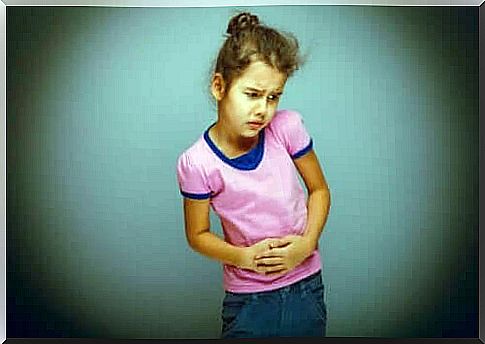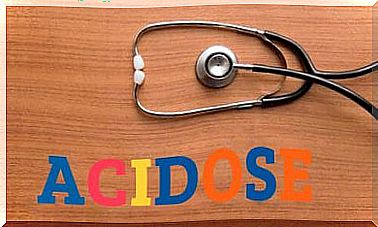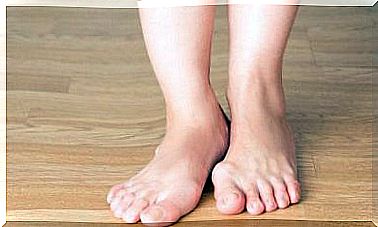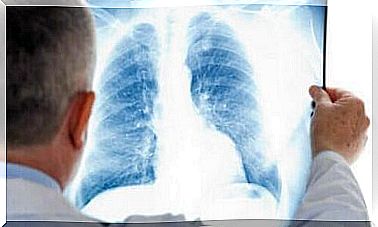Common Digestive System Diseases

There are diseases of the digestive system that appear and disappear on their own, almost as if they were temporary symptoms. For example, some types of food poisoning appear for 24 hours and then disappear.
However, there are others that are chronic, such as colon cancer, whose symptoms don’t become apparent until it causes serious health complications. Although researchers have made progress in its detection, it remains one of the most common tumors.
Part of the reason there are so many diseases of the digestive system is that the digestive tract is varied throughout its journey and includes different organs.
From the mouth with its own microenvironment to the large intestine and its associated glands, such as the pancreas, which also perform hormonal functions by secreting insulin. What are the most common digestive system diseases? Keep reading to find out!
1. Intestinal inflammation

In children, intestinal inflammation is a common disease. These are almost always infections that they get through contact with other children, especially at school.
The greatest danger of childhood diarrhea is dehydration. When an intestinal inflammation is prolonged and aggressive and promotes profuse vomiting and loose stools, water escapes from the body with electrolytes.
Hydration is therefore the basic treatment for intestinal inflammation. Parents should properly offer liquids to children, without creating nausea and also supplement salts, especially sodium and potassium.
In a number of countries, diarrhea is a leading cause of death and a public health problem associated with poor sanitation. Simple hygiene, including hand washing, is already a powerful barrier against the microorganisms that cause intestinal inflammation.
2. Gastroesophageal Reflux
Gastroesophageal reflux disease (GERD) is an unpleasant condition in which stomach acid returns and travels up the esophagus. Patients often complain of chest pain, heartburn, and even coughing.
Hydrochloric acid from the stomach should only get into the stomach so that it does not cause harm to other parts of the body. When it goes to other organs, it hurts and this is what happens to the esophagus, which is unable to absorb that acidity.
It is common for GERD to be associated with an upset stomach or stomach rupture. Stomach inflammation is inflammation of the gastric mucosa, and gastric rupture is the incorrect position of the fundus of the stomach, which is above the diaphragm.
To treat the condition, doctors often prescribe antacids and changing eating habits. The patient should reduce the volume of food they eat at each meal and eat approximately every 4 hours.
3. Hemorrhoids
In adults, hemorrhoids are one of the most common disorders of the digestive system. It is veins in the rectal area that become varicose veins (Spanish link), that is, they stretch and become inflamed until they bleed.
In fact, a common symptom is the appearance of blood in the stool. The person defecates and then small droplets of blood may be seen in the toilet. When someone suffers from inflammation of the hemorrhoids, they may also experience anal itching.
Often a doctor can observe hemorrhoids with the naked eye and the diagnosis is also quick. In other cases, they are internal, so the doctor makes an observation with a device, in a procedure called rectoscopy (proctoscopy) or anoscopy.
4. Colon cancer

Colon cancer is still one of the most common cancers in the world. The death rate is also still high. Colon cancer is a serious disease and unfortunately it is very common.
It is the third most common tumor in the world after lung and breast cancer . In a number of countries, it has risen to second place when you combine the number of men and women with the diagnosis.
Although the highest number of cases occurs at age 70, susceptibility and risk increase from age 50. Doctors therefore recommend regular colonoscopy from that age to detect polyps that can be removed before they become cancerous.
Today, there are several treatment options for colon cancer. However, it is still a serious problem. The basis of treatment is in fact early detection. For this reason, campaigns promoting tracer endoscopies are essential.
Common Digestive System Diseases: Treatment
Diarrhea, gastroesophageal reflux, hemorrhoids, and colon cancer are diseases of the digestive system that have good treatment options. Science is in fact sufficiently advanced to be able to identify suitable forms of prevention and treatment.
Individual and social responsibility is important in each of them. Good hygiene, healthy eating, sufficient awareness to schedule a consultation early and perform screening tests are the tools at our disposal to fight the most common diseases of the digestive system.









